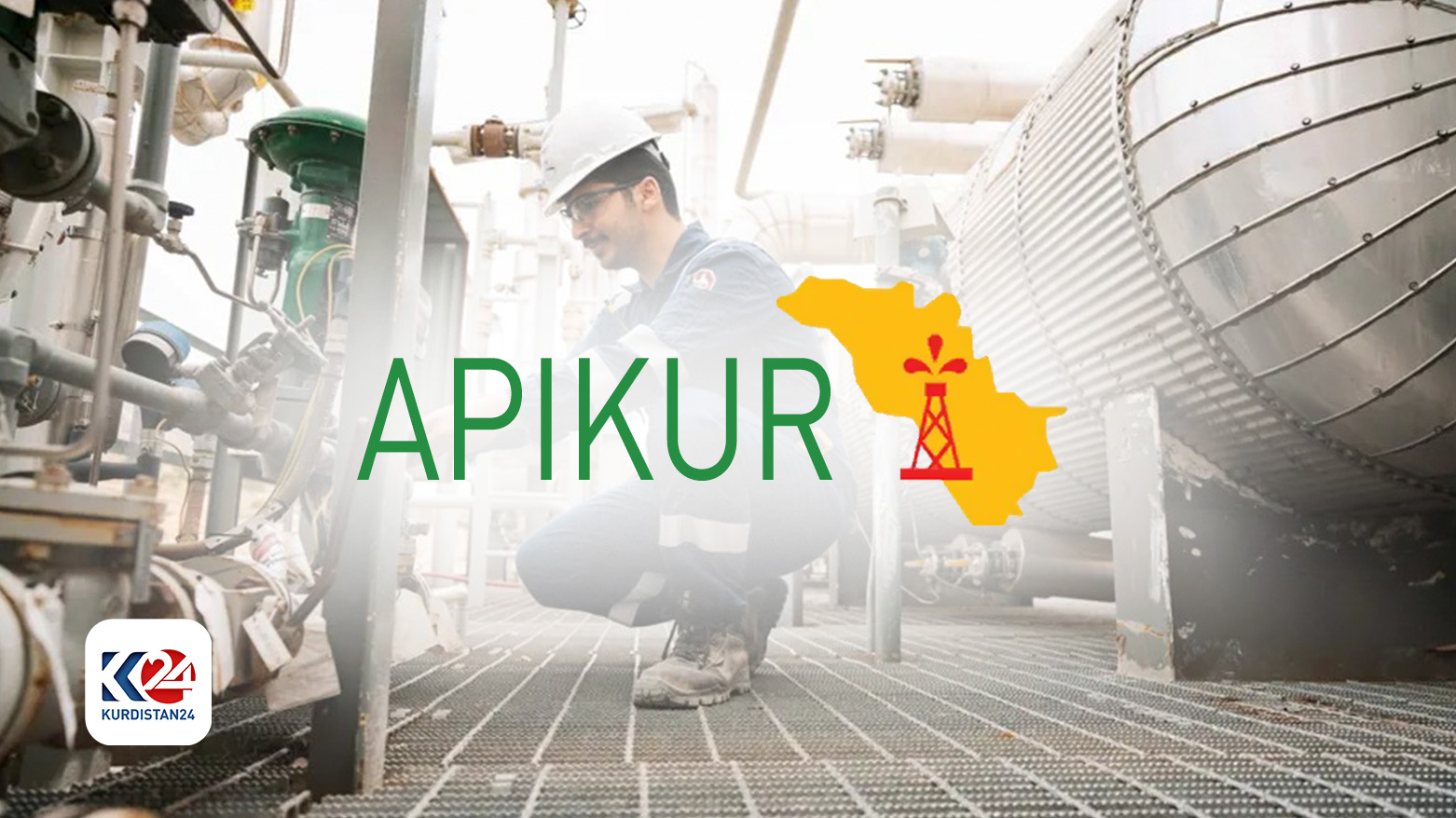Oil companies in Kurdistan welcome dialogue between Baghdad and Erbil
“APIKUR members have communicated conditions precedent to resume full oil exports and remain committed to resolve outstanding issues.”

ERBIL (Kurdistan 24) - The Association of the Petroleum Industry of Kurdistan (APIKUR) on Friday welcomed the recent discussions between Iraqi and Kurdish officials on the resumption of full production and oil exports.
APIKUR members have communicated conditions to @IraqiGovt and @Kurdistan precedent to resume full oil exports and remain committed to resolve outstanding issues. #Iraq #oil #Kurdistan
— APIKUR (@apikur_oil) November 17, 2023
See @apikur_oil’s latest press release:https://t.co/ymfGthWzjz
A delegation from Iraq’s Ministry of Oil, headed by Iraqi Oil Minister Hayyan Abdul Ghani met with Kurdistan Region officials, including Kurdistan Region PM Masrour Barzani, on Nov. 12-13 in Erbil.
Read More: KRG had ‘good understanding’ with Iraq oil officials, says PM Barzani
“We reached a good understanding in our discussions and they decided to go back to Baghdad to discuss it with their colleagues prior to making a final decision on the recommendations,” PM Barzani told reporters in Erbil on Nov. 14. “There is a prospect for resuming the oil export,” he added.
The oil export from the Kurdistan Region has been halted since March 25 by Turkey after Iraq claimed victory against Turkey at an international arbitration court.
APIKUR was founded in 2023 by international upstream oil and gas companies active in the Kurdistan Region of Iraq and include Genel Energy, Gulf Keystone Petroleum, Shamaran Petroleum, HKN Energy Ltd, DNO and Hunt Oil. Together, they contribute to approximately half of the oil production in the Kurdistan region of Iraq.
“APIKUR members have communicated conditions precedent to resume full oil exports and remain committed to resolve outstanding issues,” APIKUR said in a statement on Friday.
“Production Sharing Contracts (PSCs) remain in-force and are governed by English law with dispute resolution via international arbitration at the London Court of International Arbitration. APIKUR notes the recent discussions between leaders from the GOI and KRG as a potentially positive step towards resuming oil exports via the Iraq-Türkiye Pipeline (ITP),” the statement added.
Moreover, it said representatives from APIKUR member companies were not invited to the meeting between the Iraqi Ministry of Oil and Kurdistan Regional Government (KRG) officials “and have not received any official communications of the meeting’s outcomes.”
APIKUR members underlined that any addendums must be agreed between the GOI, the KRG, and APIKUR member companies.
“There must be payment surety for past and future oil exports. Prospective oil sale payments to APIKUR member companies must be remitted directly to those companies,” APIKUR said.
Moreover, they said that the APIKUR member companies' current commercial terms and economic model must be maintained.
“APIKUR remains committed to swiftly resolve remaining issues to resume full production and export through ITP for the benefit of all parties and the people of Iraq. Under the status quo, losses continue to climb with more than $7 billion in export revenue lost since the pipeline closure in March 2023.”
Furthermore, APIKUR said Iraq is incurring over $1 million per day in financial penalties for not meeting its obligations under the ITP (Iraq Turkey Pipeline) agreement.
Read More: Kurdistan Region, Iraq lost $7 billion in oil revenues thus far in 2023, says APIKUR spox
Earlier Myles B. Caggins III, the spokesperson for the Association of Petroleum Industry of Kurdistan (APIKUR), told Kurdistan 24 that “with the current production-sharing contracts, APIKUR members can sell oil produced in the Kurdistan Region to Baghdad through SOMO [State Organization for Marketing of Oil].”
“In Dubai, we informed [Iraqi] Ministry of Oil officials and SOMO (on Nov. 8) that we’re willing to sell oil to federal Iraq so that oil can then be exported to global energy markets.”